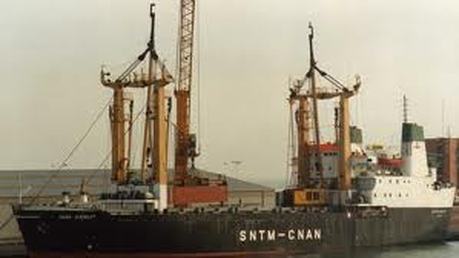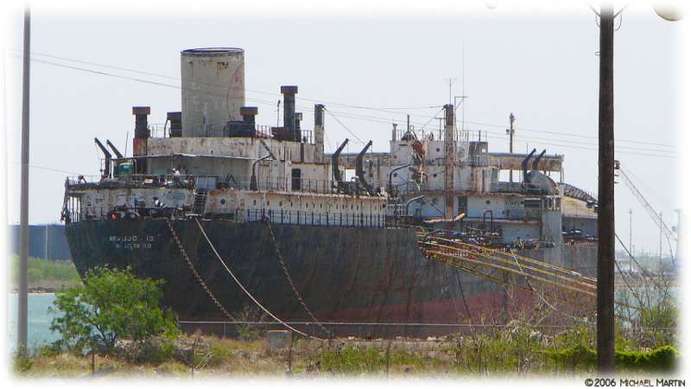This is great news, and not only for mariners, but for our entire industry. Here's a post on the ILO website; and another from Naftrade. And this good 3-part article from Seafarer's Rights International goes into useful detail. There are lots of other good references about it on the Web, so if you know of one that covers some aspects these don't, then please link to it in the "Comments" section!
Why is MLC a good thing? For one thing, widespread enforcement of the agreement's provisions will begin to close a shameful back door through which unscrupulous companies have tried to make themselves "more competitive" by exploiting helpless seamen in order to cut crew costs. "More competitive" is in quotes because by any sane calculation a company that used this method to cut crew costs certainly couldn't be considered "competitive". If they ran the rest of their business like that, any knowledgeable shipper would stay as far from them as possible! There's cheap, and then there's stupid. A poorly-run company is a lousy risk in today's competitive - and litigious - shipping world.
And that's a second reason this is such good news: it adds to the professional status of the world's merchant seamen by setting a standard for all to meet - a standard that should be independently borne out by Port State Control (PSC) inspections. This rewards responsible flags and ship operators who maintain high standards.
And all this - and more, such as protection for whistle-blowers - takes a lot of the onus for maintaining safe working conditions off of the individual seafarer and makes it everyone's concern.
I remember a ship that was arrested in Baltimore back in the '90s. I was a tug skipper at that time. We'd been dispatched to the ship, but sailing was delayed. After a bit I hailed a crewmember I could see on deck, and he told me the problem. He was the Chief Mate, and was leading a work action. The crew were all on deck refusing to work, the Master was isolated in the wheelhouse - a standoff.
Turned out the crew had refused to sail the ship, hoping that in a US port they could successfully bring up their grievances. The Mate said they hadn't been paid in many months and the food was unfit to eat, among other abuses. Men who'd complained had been unceremoniously sent home from a previous port with no pay.
Since the ship was under arrest, our tugs left to go do other jobs. I never saw those guys again, but an article in the paper a few days later said that the striking crew had been paid what they were owed and sent home. A new crew was shipped, certain conditions were met, and the ship was allowed to sail. I wonder how the new crew made out?
If you've done any reading about the history of the union movement at sea, or known any real old-timers, you know that the seaman's battle for union representation has been long and full of strife. Almost a century ago it was getting started in US ships, to the occasional accompaniment of violence and bloodshed - on both sides.
And incredibly, once unions did become established, some of them used their own power to exploit seamen! Sometimes union leadership subverted their own democratic processes in order to keep power in the hands of an elite. Organized crime infiltrated some union organizations, with predictable results. There's some ugly history on both sides if you want to look it up. Human affairs can be messy!
But ask yourself - in spite of all this strife - why did the union movement come into being in the first place? Obviously, it addressed a crying need. In the end, all American seamen (whether union members or not) benefited. And so did American maritime industry as a whole. Standards pushed in large part by unions elevated the entire industry.
And I think that's where we are today, with the adoption of MLC - everyone benefits. There's no suggestion of a power play about this - responsible shipping companies and shipping organizations (see the GL YouTube interview above) have welcomed the news as eagerly as flag states and the unions. They see it as bringing stability and a level playing field to manning & training.
And the greater professionalization of the mariner will result in better qualified, safer crews. If you were a shipowner, wouldn't you feel better about turning your multi-million dollar ship investment over to motivated, highly qualified crews? The MLC is a classic win-win.
As in all such things, a lot will depend on implementation. This post from Barista Uno at Marine Cafe Blog expresses justifiable caution on that front (read his other posts on the subject, as well, for some good information). But with so much already accomplished, I'm reasonably confident that the industry will complete the final laps.
Are you working for a company that will be affected by MLC's implementation? Have you worked toward bringing MLC into being? Has your country ratified the convention yet? Please let us know your point of view and how you think MLC will affect your working environment in the Comments section!


 RSS Feed
RSS Feed